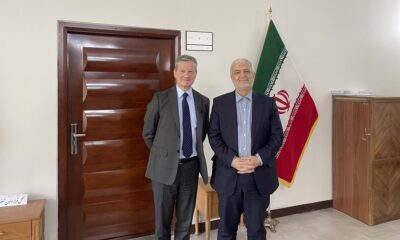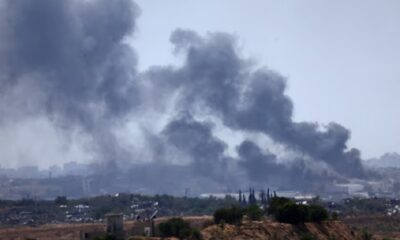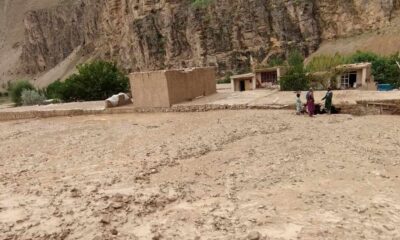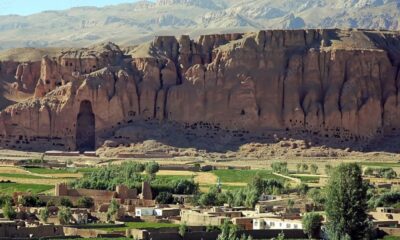Latest News
Neglecting climate change in Afghanistan will be catastrophic: IEA
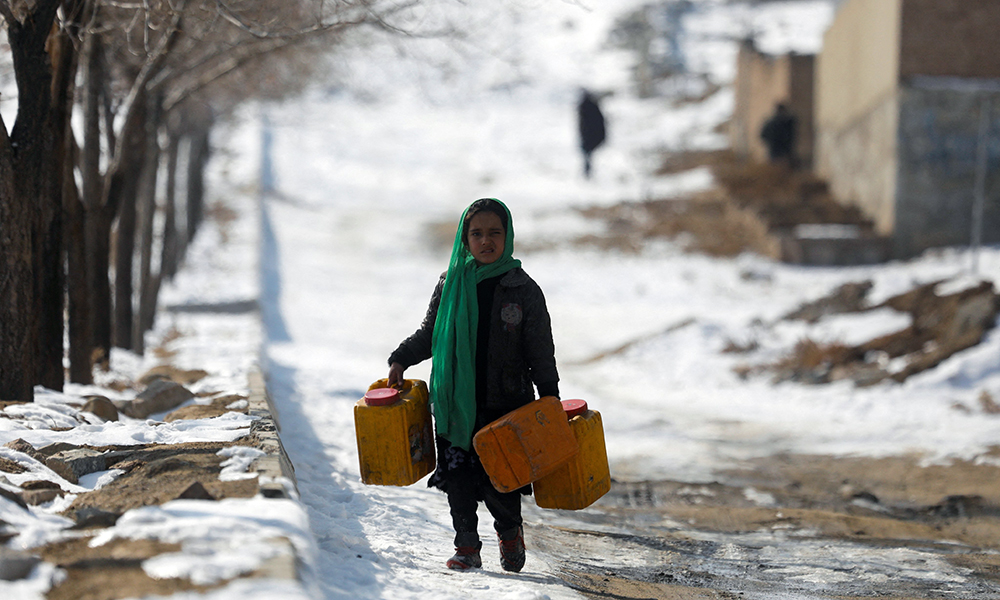
Afghanistan stands among the nations that continue to face devastating consequences of climate change, but despite this the country has had to endure blatant injustice on the part of the international community regarding this critical issue.
After the return to power of the Islamic Emirate, the international community not only imposed various sanctions, but approached the issue of climate change in Afghanistan from a political perspective.
Consequently, with the suspension of 32 environmental and climate change projects, restricting Afghanistan’s access to pledged financial resources, and the exclusion of Afghanistan from regional and international meetings and conferences on environmental and climate issues, there has been blatant injustice against the people of Afghanistan.
In an article published by the Islamic Emirate’s official al Emarah on Thursday, the Islamic Emirate stated that as the Earth’s temperature continues to rise, climate change poses a threat to all facets of human existence.
Pointing out that countries lacking in resources, including Afghanistan, face heightened vulnerability to the perils of climate change, as they lack the requisite means and infrastructure to effectively mitigate and manage its effects.
According to information from Afghanistan’s National Environmental Protection Agency (NEPA), temperatures in the southern regions of the country have increased by 2.4 degrees Celsius over the past century, Hindu Kush regions by 1 degree Celsius, central and northern highlands by 1.6 to 1.7 degrees Celsius, and eastern regions of Afghanistan by 0.6 degrees Celsius.
This has created numerous problems in urban and rural areas of Afghanistan, including increased poverty, migration, recurring droughts, floods, rising temperatures, destruction of farms and forests, food shortages, livestock deaths, and the emergence of various diseases.
“These can be identified as the undesirable consequences and impacts of climate change in Afghanistan,” the report read.
The continuation of this situation has severely affected not only the water, agriculture, livestock, forests, and grasslands sectors but also significantly impacted the social and economic lives of the people of Afghanistan, as well as health, energy, biodiversity, and ecosystems, al Emarah reported.
Despite the challenges and existing problems, officials at NEPA have made necessary efforts to manage the issue of climate change in Afghanistan utilizing available resources. Over the past three years, practical steps have been taken regarding drafting, revising, and amending laws, policies, regulations, and work plans, as well as project design.
Revision of environmental laws, national environmental policy, regulations on ozone-depleting substances, approval of the KIGALI Amendment to the Montreal Protocol 2020, and other related documents can be highlighted as prominent actions in the field of climate change mitigation.
Other steps have also been taken, including the prioritization of climate-compatible water and watershed projects, the restoration of degraded ecosystems, sustainable management plans for Nuristan National Park, sustainable forest and land management projects, and combating land degradation and biodiversity loss through enhancing sustainable food systems in Afghanistan.
The Islamic Emirate, under its environmental protection policy for Afghanistan, has placed climate change management at the forefront of its work priorities and has initiated efforts to mitigate the situation with the resources at hand.
With ensuring security nationwide, the Islamic Emirate has provided a conducive environment for implementing projects in various sectors across Afghanistan.
As climate change is an overarching issue, tackling the challenges and risks it poses requires joint efforts from all governments and collaboration among all stakeholders.
In light of this, the international community, nations, and pertinent organizations ought to prioritize environmental and climate change matters in Afghanistan. They should take practical and genuine steps by resuming suspended environmental and climate change projects, facilitating access to pledged financial resources, and creating opportunities for active Afghan participation in regional and international forums and conferences, al Emarah reported.
“Moreover, throughout this period, the people of Afghanistan have been directly impacted by the consequences of climate change, enduring significant financial and human losses.
“Therefore, the global community and pertinent organizations must extricate the environmental issue and climate change in Afghanistan from political spheres, conceiving it instead as a human dilemma,” the report read.
Latest News
Nicaragua president sends letter of condolence to IEA leader after floods

The Afghan Embassy in China announced Saturday that the President of Nicaragua has sent a letter of condolence to the leader of the Islamic Emirate, Mawlawi Hebatullah Akhundzada, following the recent deadly floods in Afghanistan.
Based on the embassy’s statement, the letter was handed over by Michael Campbell, the Nicaraguan ambassador to China, to Bilal Karimi, the Afghan ambassador to China.
In the letter, Nicaragua president, Daniel Ortega, while expressing his sympathy over the floods, expressed his interest in establishing good relations with the Islamic Emirate and cooperation in various fields.
The Nicaraguan ambassador stated that the Nicaraguan people, like the Afghans, achieved independence after a hard struggle against the colonialists, which is a common point between the two countries.
Meanwhile, Bilal Karimi, Afghanistan’s ambassador to China, has said that he will convey the condolence letter of the President of Nicaragua to the leader of the Islamic Emirate. He also assured of maintaining good relations with the country.
Karimi emphasized that all Latin American countries are important, but Nicaragua’s taking the initiative is a positive and admirable move.
Latest News
UN Doha meeting should reflect realities of Afghanistan: Iranian envoy
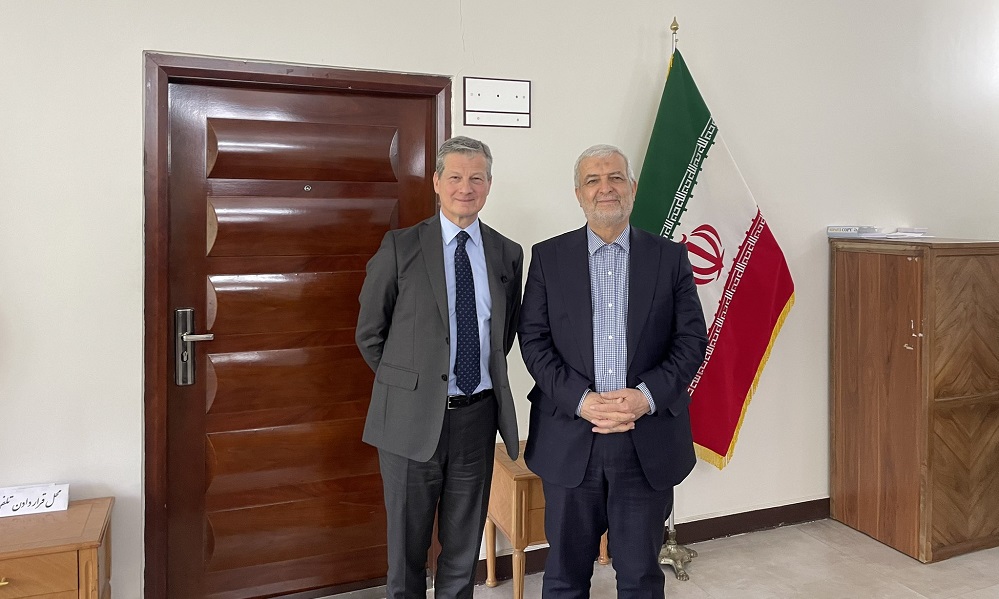
Iran’s special representative for Afghanistan, Hassan Kazemi Qomi, said in a meeting with his Italian counterpart that the next UN-convened meeting on Afghanistan should reflect the realities of the country.
Qomi said that Tehran is ready to work with Europe on the development of a comprehensive cooperation plan for Afghanistan based on the consultations it has conducted.
He added that the topics of the third meeting of special envoys on Afghanistan in Doha should be based on the realities of the region and Afghanistan.
“The actions of countries outside the region have not been useful in solving the crisis and challenges of Afghanistan so far, and if this situation continues, Europe will also be plagued by the problems,” he said.
The last meeting of the United Nations on Afghanistan was held in Doha in February this year, but it failed to achieve its primary objectives.
Latest News
Floods kill 50 people in Afghanistan’s Ghor province
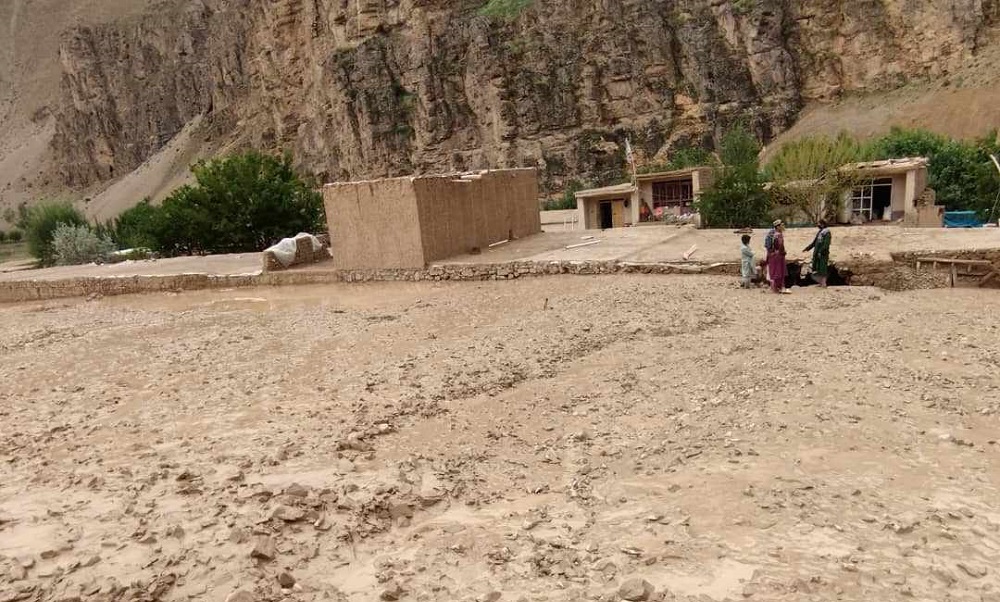
As many as 50 people died and 10 others went missing following floods in Afghanistan’s western Ghor province on Friday, local officials said.
A total of 2,000 houses were destroyed and 4,000 homes were partially damaged in the floods, the provincial police said in a statement. 2,500 shops have been completely destroyed.
Based on the statement, thousands of livestock perished and over 50 vehicles were damaged.
Moreover, hundreds of hectares of agricultural land and bridges have been destroyed.
Floods have also caused closure of Ghor-Kabul and Ghor-Herat highways, and roads connecting Ghor districts.
Seven people killed following floods in Faryab
Meanwhile, local officials in Faryab say that seven people have died due to floods in the northern Afghan province.
Ismatullah Moradi, the spokesman of Faryab governor, says that the floods in this province have caused huge material losses.
Meanwhile, Sar-e-pol governor’s office in a statement said that floods in the province had destroyed hundreds of acres of agricultural land, 60 houses, bridges, water dams, and shops.
The statement added that the losses are likely to increase.
-

 Sport5 days ago
Sport5 days agoTeam unity, newfound aggression key to RCB’s dramatic IPL turnaround
-

 Latest News5 days ago
Latest News5 days agoUS partners in Afghanistan mobilizing emergency aid for flood victims: Thomas West
-

 Climate Change3 days ago
Climate Change3 days agoSummer 2023 was the hottest in 2,000 years, study says
-

 World4 days ago
World4 days agoBlinken arrives in Ukraine in show of US solidarity amid Russian attacks
-

 World3 days ago
World3 days agoManhunt underway after gunmen ambush French prison van to free drug dealer
-

 Sport3 days ago
Sport3 days agoStubbs gives Delhi IPL play-off hope with win in last league match
-
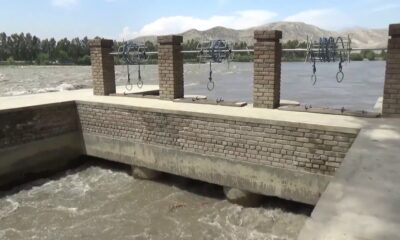
 Latest News4 days ago
Latest News4 days agoNakamura canal project completed in Nangarhar
-

 Latest News4 days ago
Latest News4 days agoActing health minister visits flood-stricken villages in Baghlan




